Analyzing Learning Styles and Theories for Business Communication
VerifiedAdded on 2024/06/04
|11
|763
|64
Presentation
AI Summary
This presentation provides an overview of business communication, emphasizing the importance of effective communication techniques and the role of different learning styles and theories. It introduces the VARK model (Visual, Aural, Kinesthetic, Read/Write) as a key framework for understanding learning preferences and highlights how choosing an appropriate learning style can enhance individual performance and reduce complexities in personal and professional life. The presentation also discusses the factors that influence communication, distinguishing between one-way and two-way communication, and emphasizes the importance of communication in achieving business goals. Furthermore, it touches upon various communication theories and concludes by reiterating the vital role of learning in every stage of life and the necessity of selecting an appropriate learning style for better communication, especially in business operations. The presentation references several works to support its analysis of learning and communication.
1 out of 11

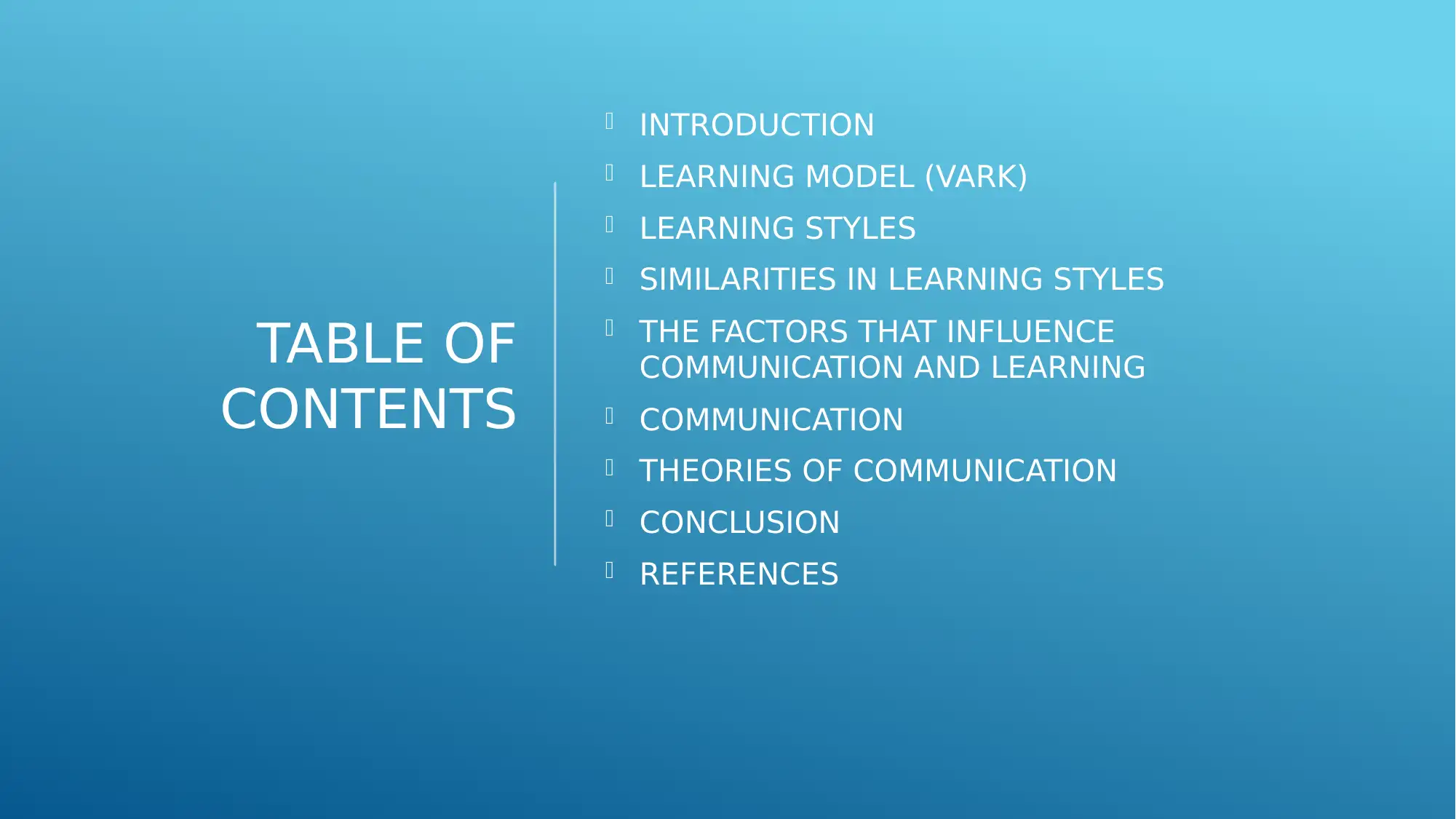
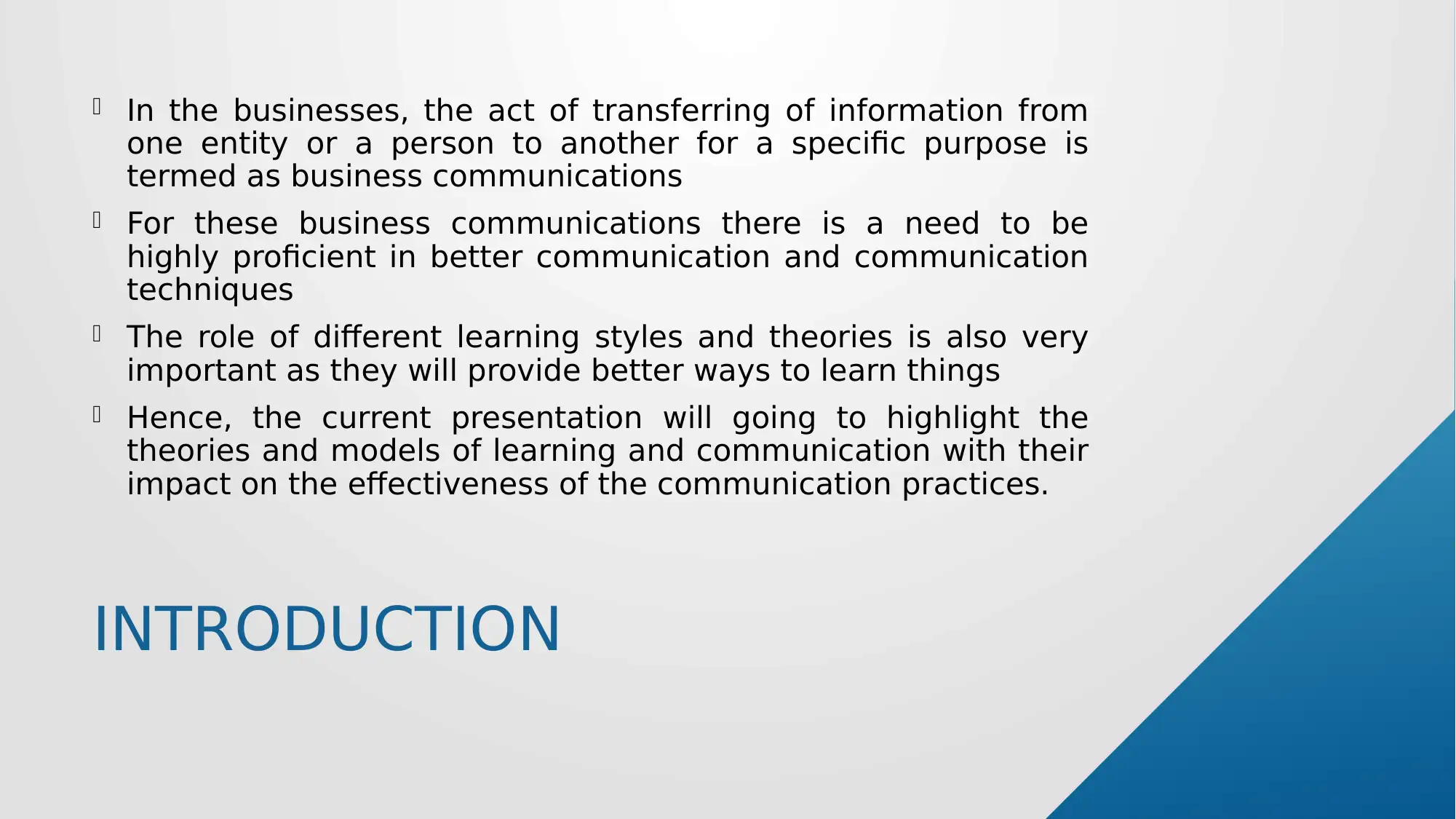

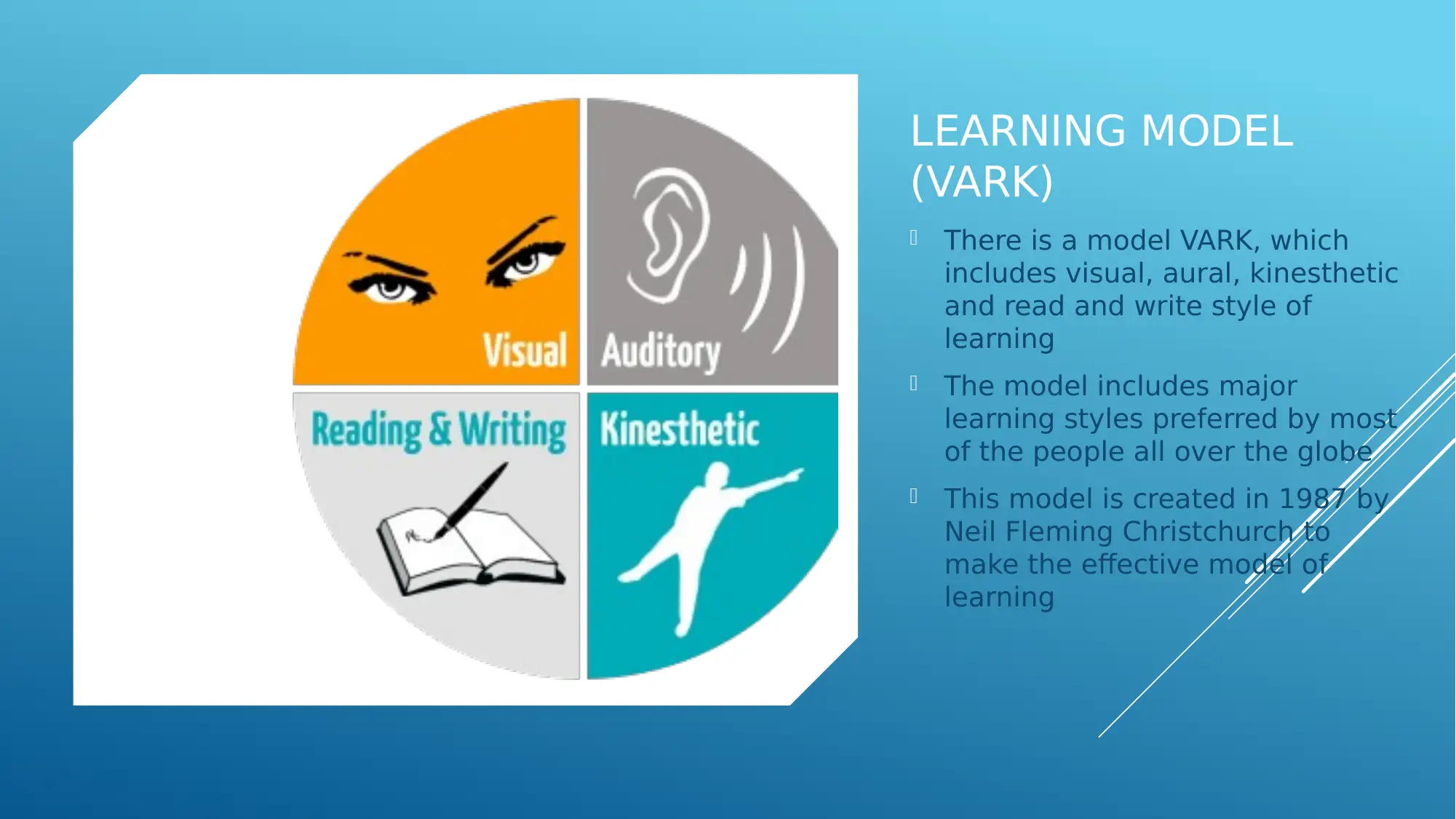
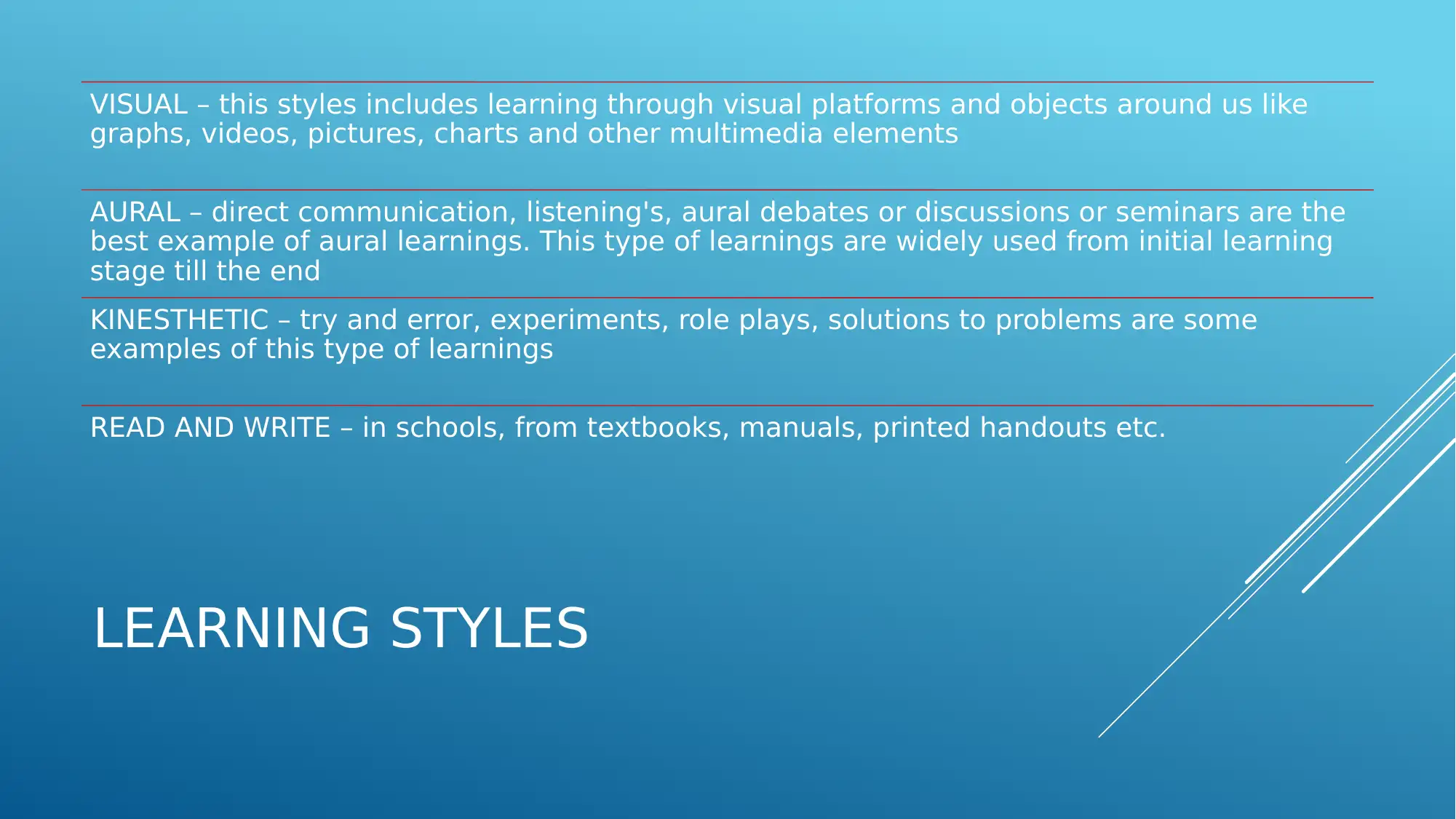
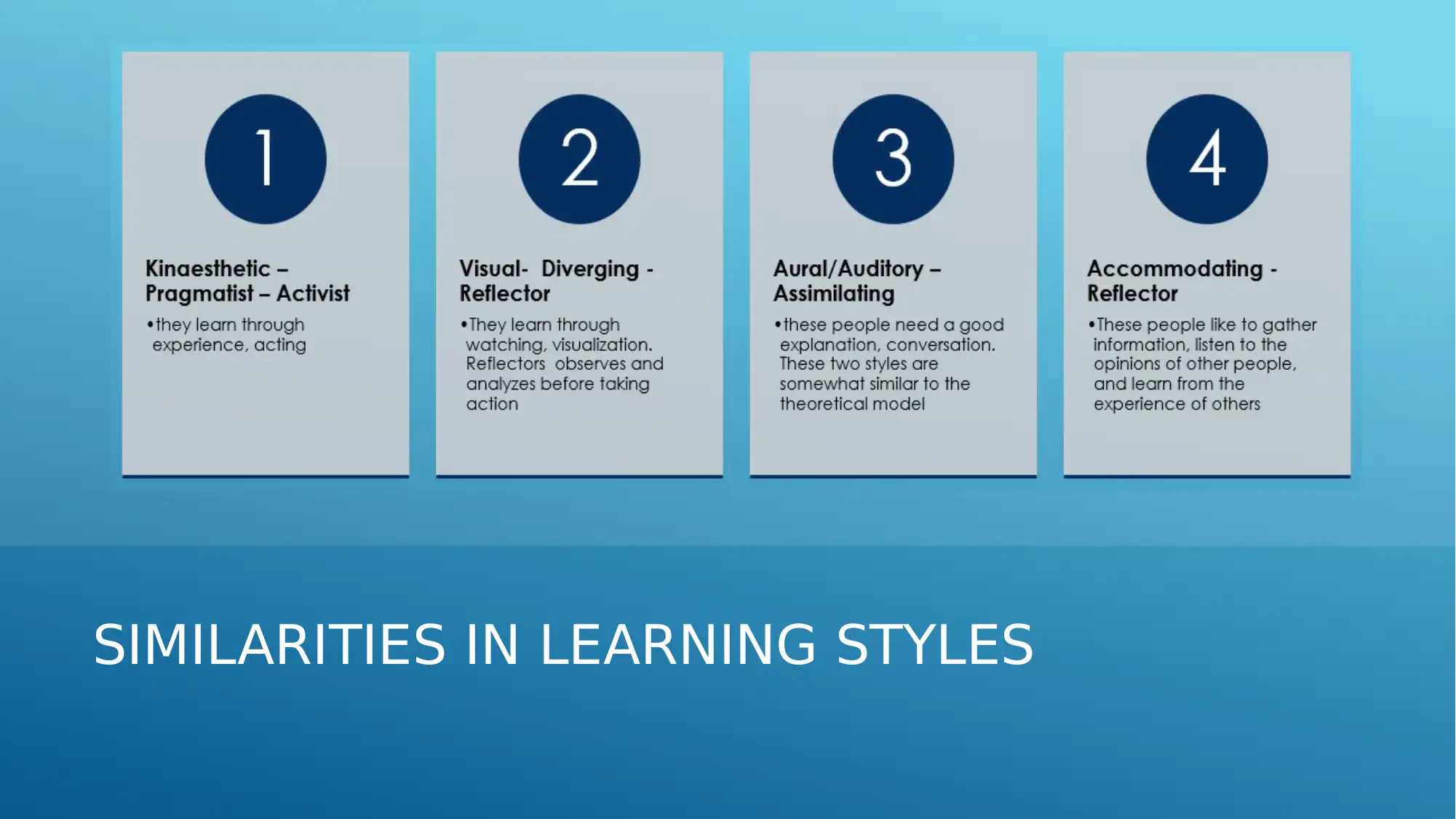
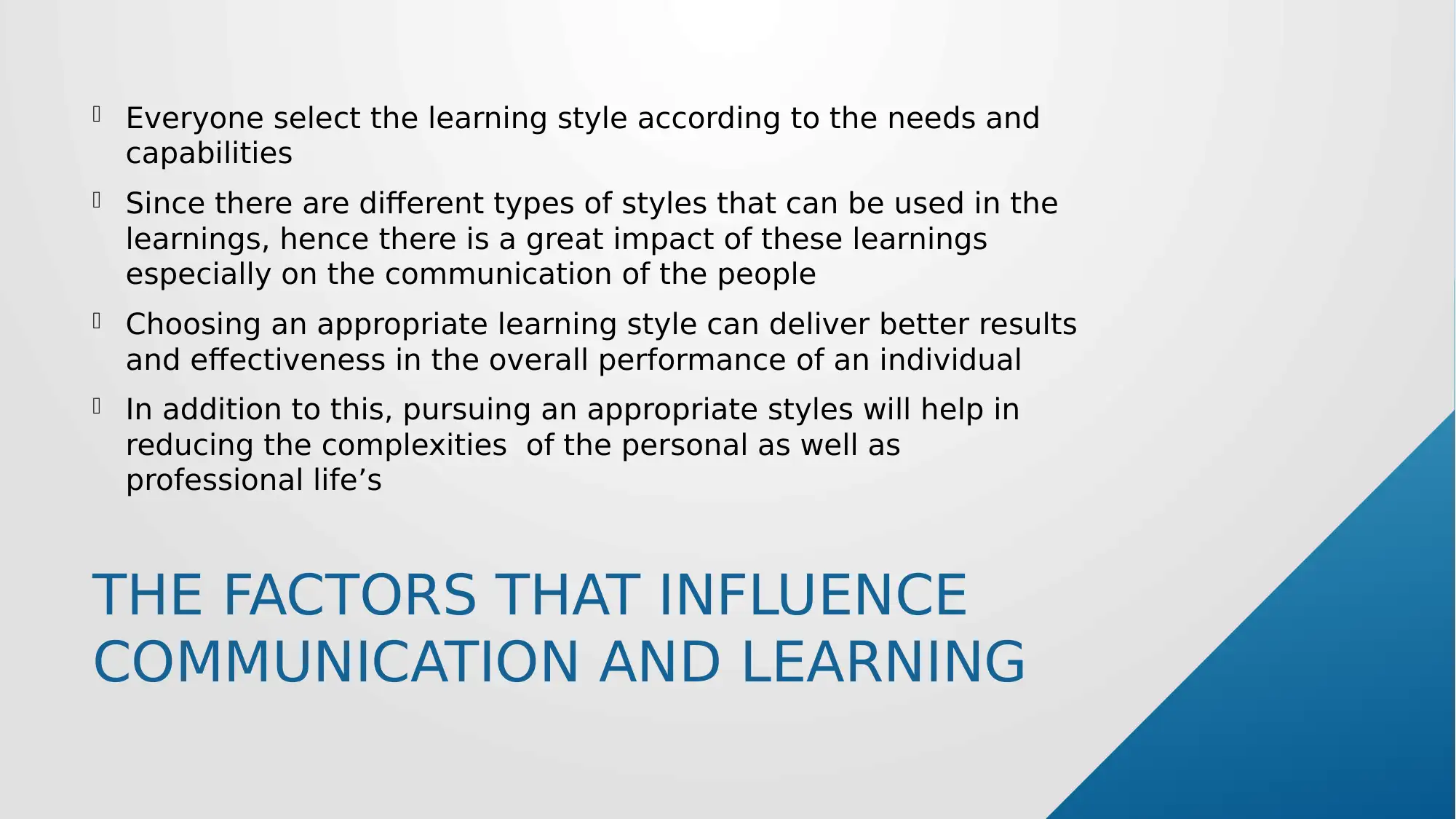
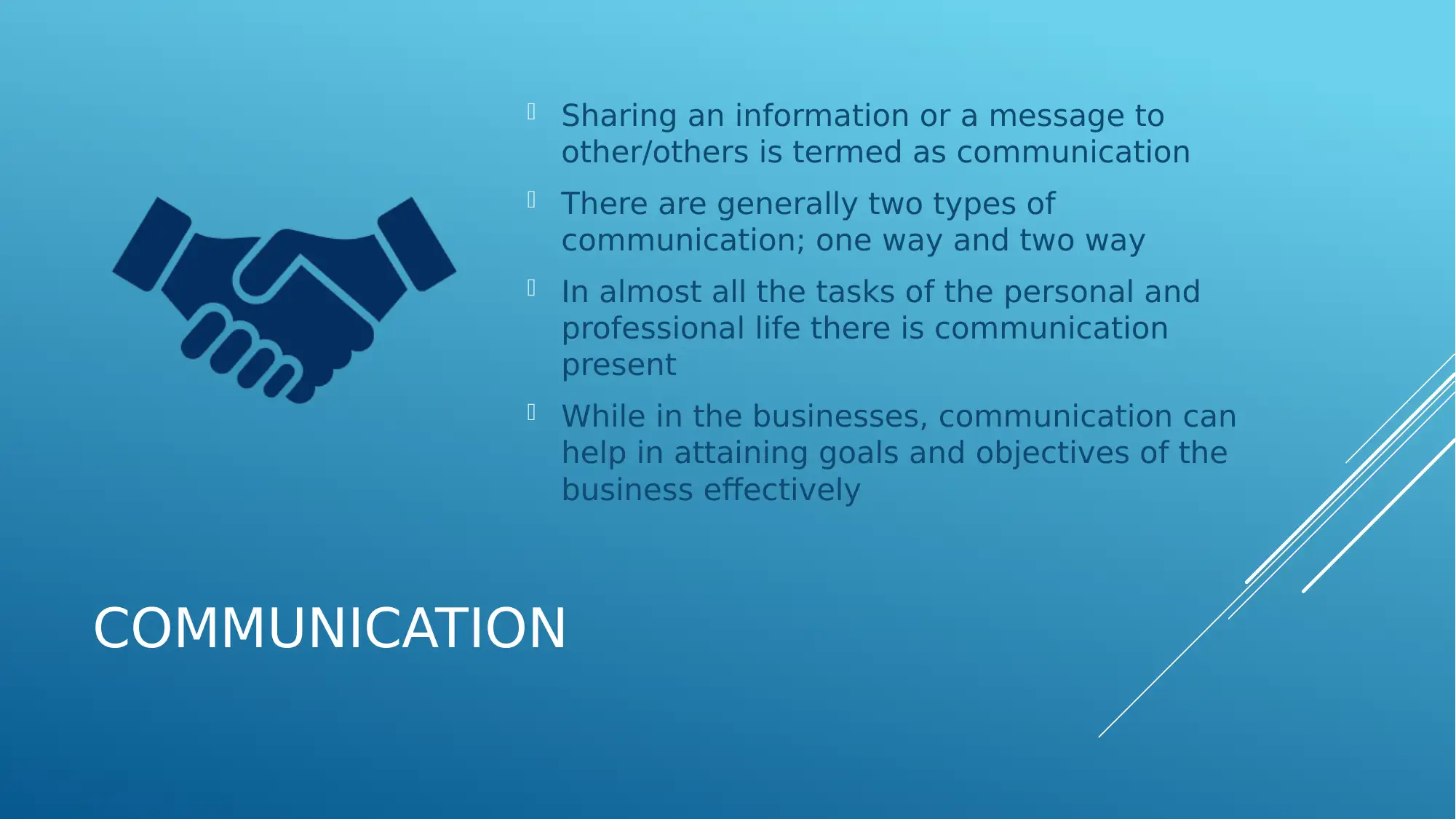
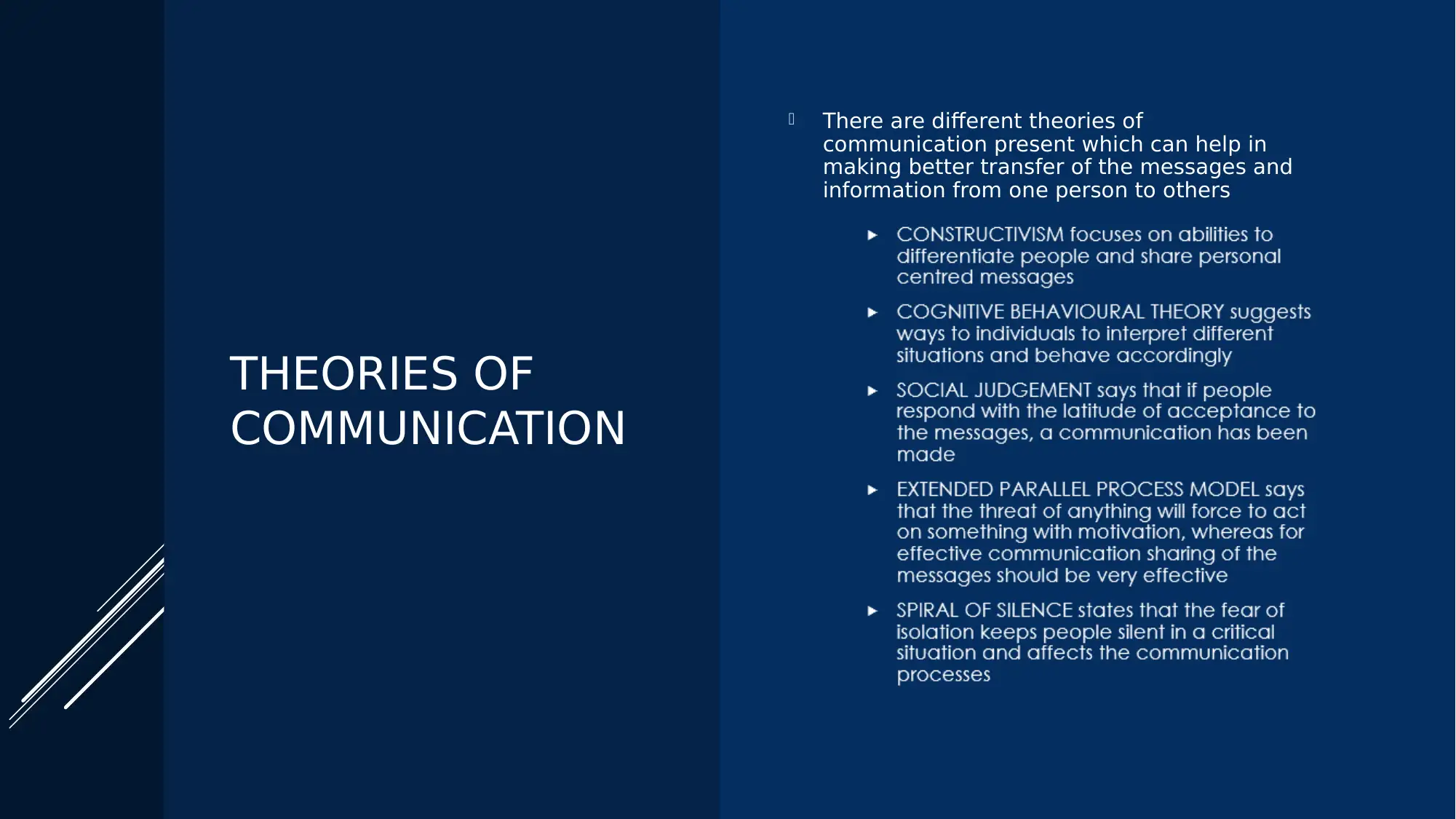
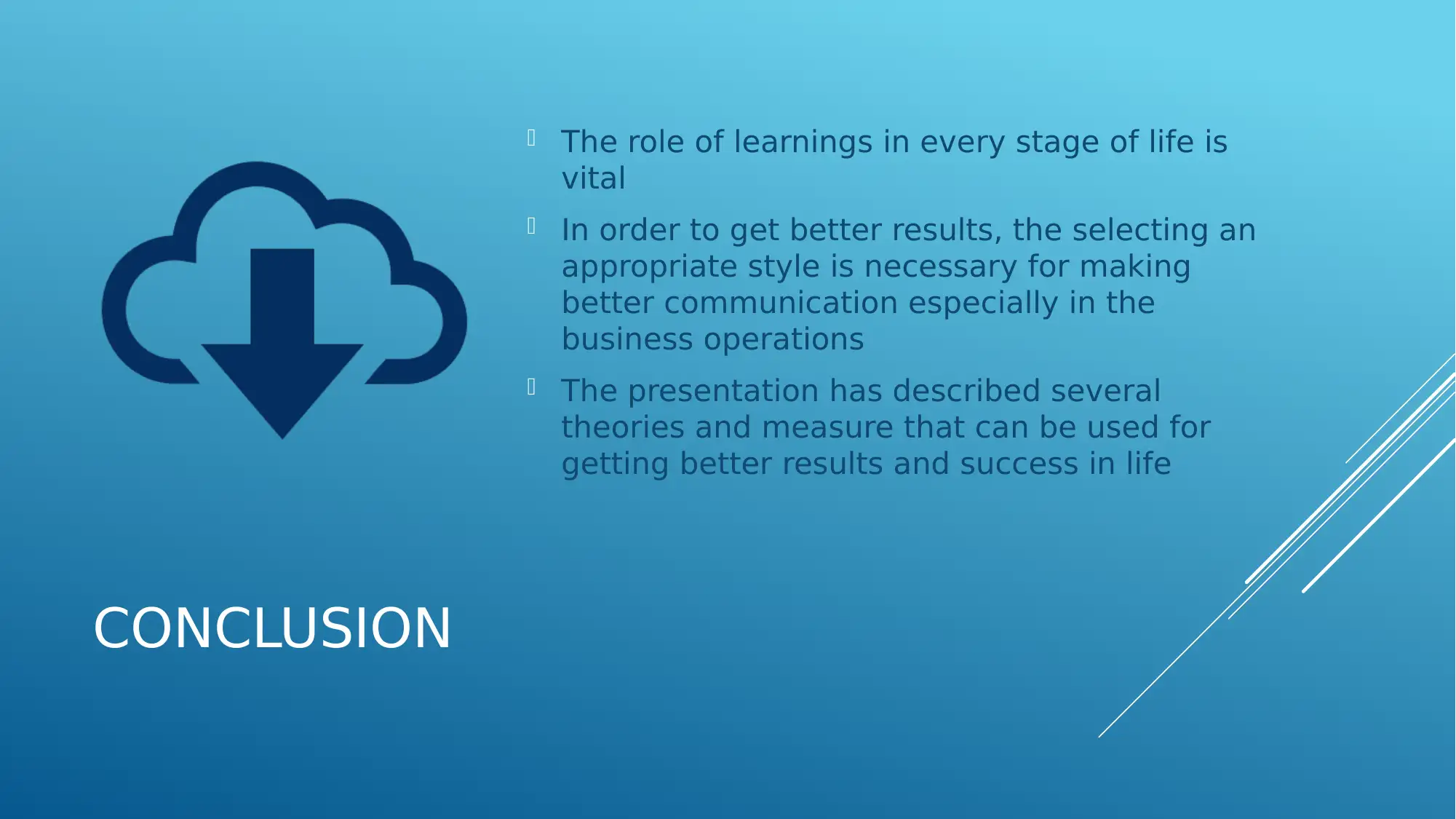
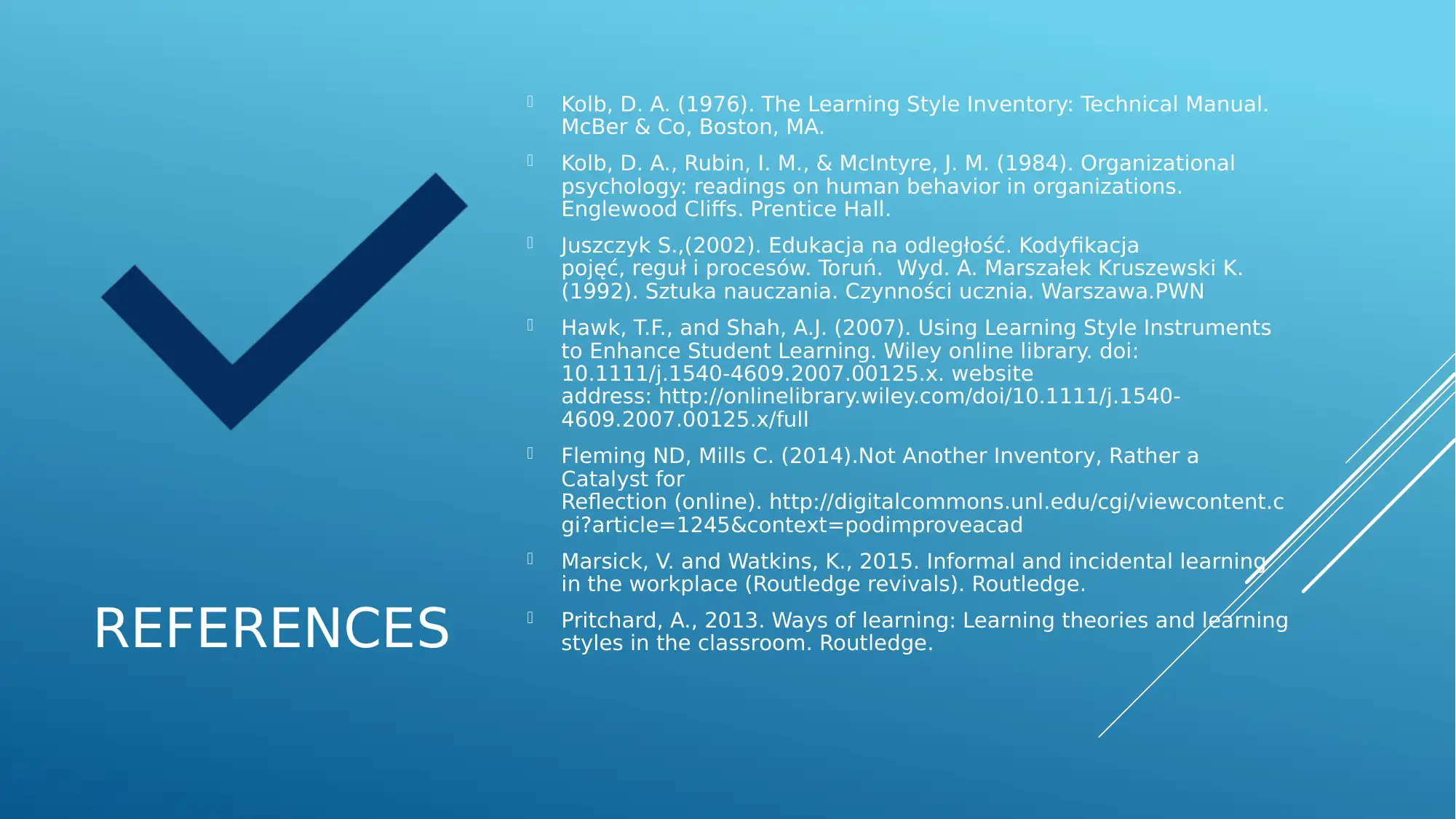






![[object Object]](/_next/static/media/star-bottom.7253800d.svg)